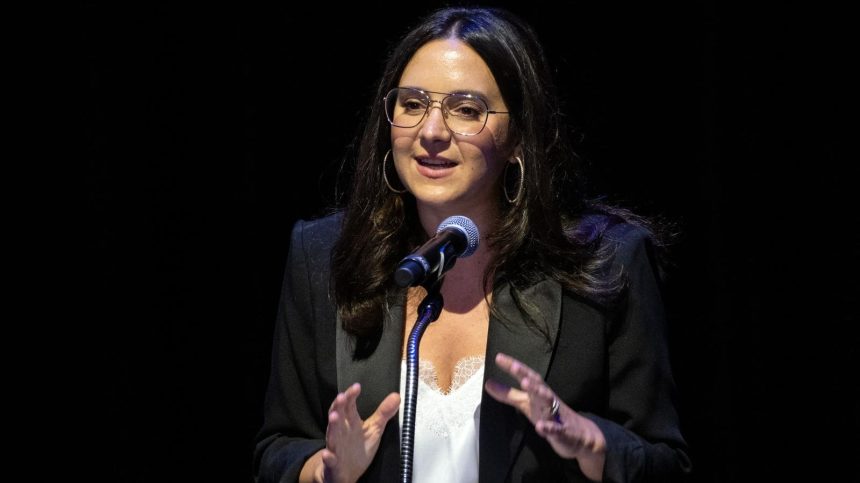In her recent essay scrutinizing Diversity, Equity, and Inclusion (DEI) initiatives, Bari Weiss presents an impassioned argument on what she says is the destructive impact of DEI ideologies on America and notably positions herself as a spokesperson for the Jewish community on this subject. She expresses profound concerns about potential misuses and abuses of DEI principles, arguing that “in reality” the goal is to exploit societal discord and concentrate political and social power within the DEI movement. Her stance frankly sounds extreme, if not a little unhinged, going as far as to call for a complete cessation of all DEI efforts and initiatives as evidenced by the straight-to-the-point title of her op-ed: “End DEI.”
Weiss’s central argument posits that DEI, rather than promoting inclusivity, actually poses a threat to American values “including the principles that have made it a place of unparalleled opportunity, safety, and freedom for so many”. Granted, I am the first to acknowledge that, given some of the more counterproductive, ridiculous and wrong-headed practices we have indeed seen develop in the DEI field, her claims do merit consideration.
However, one might also question the validity of making hyperbolic and definitive statements such as “DEI is undermining America” or “It is time to end DEI for good.” These types of blanket claims not only damage Weiss’s well-deserved reputation as one of our country’s most thoughtful public intellectuals; they also invite a far more balanced exploration of the subject and a more elaborate and detailed analysis to grasp the complexity of the issues at hand.
One of the article’s shortcomings lies in its oversimplification of the nuanced landscape of DEI, characterizing it as a singular, negative force in all of its expressions. DEI is not a one-size-fits-all ideology; rather, it comprises a rich tapestry of perspectives, strategies, and applications. There exists a spectrum of interpretations and implementations, each tailored to the unique needs and challenges of different organizations and communities.
Painting all DEI initiatives with a broad brush and as part of a single, harmful ideology conflates all such efforts into a monolithic framework that overlooks the broad array of approaches within diversity work. It fails to acknowledge the various voices, strategies, and success stories that contribute to a positive discourse on creating more inclusive environments.
It is extreme to lump all of DEI into one big “bad idea” basket. One cannot homogenize DEI under a single, negative umbrella, portraying it as a pervasive and entirely destructive force. Weiss’s one clear message seems to be, proverbially speaking, to toss the baby out with the bathwater. Indeed, she would even include the entire DEI bathtub in that metaphorical purge, if possible.
But in reality, DEI isn’t a uniform concept. If one can forgive my arguably trite analogy to follow, the movement itself can be considered a bit like a vibrant quilt with different patterns and colors. By oversimplifying it, we might miss the opportunity to appreciate the unique threads of progress and positive change within this intricate fabric. After all, we wouldn’t want to ditch the whole quilt just because we found one square we didn’t like, would we? That is truly “setting all of us up in a kind of zero-sum game”, something which, in her own words, she vigorously cautions against.
Rather than advocating for the outright end of DEI, a more constructive approach would suggest refining and improving these strategies. Acknowledging imperfections within DEI initiatives and engaging in ongoing dialogue and collaboration to improve it is a superior goal to a call that can be seen as more-or-less a right wing equivalent of “defund the police” (the single dumbest idea and slogan I have heard in a very long time).
The article also asserts that the political outlook of institutions such as universities and media outlets can be attributed solely to the rise of DEI. While DEI may undoubtedly be a tangential offshoot, it’s important to recognize that broader social, economic, and political factors also contribute to institutional changes. A thorough exploration of these multifaceted dynamics would offer a more comprehensive understanding of the forces at play in shaping organizational positions.
One item I particularly take issue with is the mischaracterization of DEI goals by suggesting that it measures fairness solely by equality of outcome rather than of opportunity. A more objective discussion could acknowledge that DEI initiatives aim to address systemic barriers and promote equal opportunities. Recognizing that outcomes may vary based on individual efforts and circumstances allows for a more accurate portrayal of the intentions behind many DEI measures.
Strangely, the article also assumes a uniform opposition to DEI within the Jewish community, potentially overlooking the diverse perspectives that naturally exist within any group. I would expect the author to acknowledge internal debates and differing opinions on the role and impact of DEI initiatives. Recognizing the complexity of opinions within the Jewish community would allow for a more accurate representation of the diversity of thought on DEI inside a community that, Ms. Weiss herself acknowledges, has traditionally supported such initiatives.
Lastly, the article almost exclusively focuses on the perceived negative aspects of DEI and neglects to explore potential positive contributions that such initiatives can have, and have made already, in fostering inclusivity and addressing historical inequities. A more balanced assessment would involve recognizing both the challenges and opportunities presented by DEI initiatives, which provides a more holistic view of their impact on organizations and communities.
I am one of the first in line to criticize and voice my opinion when DEI methods and ideas venture into questionable territory, and there’s no denying that many have done so, on multiple occasions. The rapid growth of the movement, almost like an overnight sensation, has led to the inclusion of individuals with inadequate qualifications, positions lacking evidence-based foundations, and ethical challenges. This chaotic trajectory is somewhat par for the course and to be expected when any movement experiences such swift expansion, making missteps an inevitable part of the learning curve.
Yet, it’s crucial not to overreact, overreach, or overstep in our response to these mistakes. It’s important to address them judiciously, ensuring that we course correct without compromising the overall goals and principles of DEI. And these, indeed, are as American as apple pie: diversity in representation, equity of opportunity and inclusivity for all. Fighting for these is, just as Bari puts it in her essay, “the least we owe this country.”
Read the full article here









